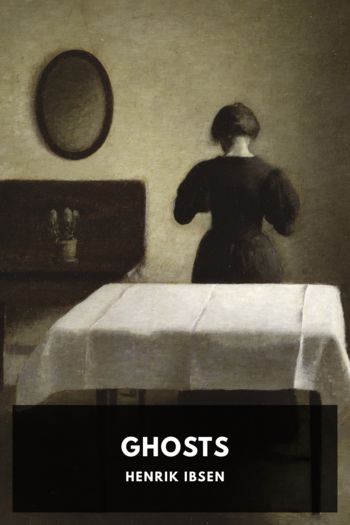Murderous David Hickson (best thriller novels of all time TXT) 📖

- Author: David Hickson
Book online «Murderous David Hickson (best thriller novels of all time TXT) 📖». Author David Hickson
“He was a prisoner here?” I asked.
Warden Noxolo’s eyes were like those of a pig. Small dark eyes, close together, surrounded by a lot of flesh. He turned them onto me now to see if I was trying to diminish the importance of Mandela’s relationship to Pollsmoor because he had been behind the bars.
“He spoke fondly of his time here,” said Warden Noxolo as if Mandela had been a holidaymaker enjoying a hotel stay instead of a man serving a life sentence. “We gave him a roof garden,” he added in support of this argument.
“Wonderful,” said Khanyi again, because she knew that I was about to make a comment that would demonstrate the warden’s ability to raise his blood pressure on cue. Khanyi liked to avoid confrontation. She gave me a push on the elbow, and we continued along the corridor.
The recreation room contained a few tables and chairs. They looked as if they had been there since before Mandela’s enjoyable stay on the premises and were all damaged.
Against the wall was an old wooden kitchen unit with cupboard doors beneath a row of drawers. One of the doors was missing and gave us a glimpse of mouldy cardboard boxes which were leaking chess pieces, board games and decomposing cartoon books. On another wall, an incongruous blackboard boasted a poorly executed chalk drawing of a buxom woman with yellow circles for hair and large pink nipples.
The best part of the room was the stretch of window that came down to about the level of the top of Warden Noxolo’s head, and gave us a view of rain-warped face-brick buildings, a roll of barbed wire, and in the distance a guard tower where I could just make out the figure of a man looking down into the yard. It wasn’t a beautiful view, but it was probably the best view available in the complex.
“Perfect,” said Khanyi, and she was right, it was. For once, the slow wheels of bureaucracy had turned in our favour.
“He’s medicated,” said Warden Noxolo, who had kept back some bad news to use against us now. “Heavily medicated,” he added with satisfaction.
“That’s a pity,” said Khanyi. “We did ask that he not be medicated.”
Warden Noxolo had another go at the bowel movement, with a small curl at the edges of his mouth to show his pleasure at breaking this news.
“He’s epileptic,” he said. “The medics refused to hold the medication back. Don’t want him having a fit. That’s not nice.”
“No, of course not,” said Khanyi.
“Only epilepsy medication?” I asked, “or have they given him something else?”
Noxolo’s pig eyes swung onto me. “They have given him what he needs.”
From the door behind him, came a rattling sound mixed with the shuffling of many feet on the linoleum floor. A group of five prison guards appeared in the doorway, concealing behind them a shorter man in a droopy orange jumpsuit that was two sizes too big for him. His thin hands were clutched together and encased in thick steel bracelets. The rattling came from the chain that hung down from his wrists and dragged along the floor, where it joined with the chain that linked his feet. The guards halted outside the door, then two of them came into the room. The man in the orange suit was pushed forward and stumbled, a penguin who had lost its footing on the ice, and then the other three guards came in behind him.
Nqobeni ‘Q’ Nyambawu was an unprepossessing man with a thin face, hollow cheeks and bald head. His eyes were fixed on the ground before him, as if that was as far as he could face into his future. He was about the same height as Warden Noxolo, so we were afforded only momentary glimpses of him between the shoulders of the guards.
A guard said something in an indigenous language to Warden Noxolo, who turned to Khanyi.
“We don’t recommend removing the shackles,” said Warden Noxolo in a voice that sounded smug, but which he had probably intended to sound regretful. “This prisoner is dangerous,” he added, because the visual evidence of that danger was not being adequately conveyed by the sad slouch of the little man gazing at the floor before us.
“Please do as agreed,” said Khanyi.
Warden Noxolo gave an irritated order to the guards, and they removed Q’s chains. A guard brought in a tray with three steaming mugs on it. He looked enquiringly at Warden Noxolo, who gestured at a table with ill grace, and the man placed the tray there.
When the chains had been removed, the guards all stepped back from the prisoner as if expecting that he might erupt. But he stood there like a wilting orange marigold and stared at the floor, his hands clutched together as if he was still bound.
“Thank you,” said Khanyi, and with reluctance the guards withdrew, followed by Warden Noxolo, who suggested leaving the door open, but then slammed it when we declined.
The man everyone called Q shuffled over to the table and sat in a chair facing the window after Khanyi insisted that he sit down. He didn’t raise his eyes, but studied his hands, which he clutched together on the table before him. Khanyi passed him a mug of hot chocolate, and he opened his hands to receive it as if they were bound together at the wrist. Then he discovered they weren’t bound, and moved his hands apart experimentally, then brought them back together again and they warmed themselves around the mug. Khanyi passed me a mug, and I went to stand before the window. She helped herself to the third mug and sat across the table from Q, leaned back in a relaxed way and spoke in Zulu to him, asking him to look at her. He looked up with some reluctance. His eyes were framed with long eyelashes, and he blinked frequently as if





Comments (0)